 Your new post is loading...
 Your new post is loading...

|
Scooped by
Gust MEES
|

|
Scooped by
Gust MEES
|
For decades, neuroscientists and psychologists have tried to understand what exactly goes on in the brain when we turn our imaginations loose and what limits the ability of many of us to envision distant scenarios. In a new study, published in the Journal of Personality and Social Psychology last month, researchers report that creative professionals seem to be better than others at surmounting the mental barriers to accessing distal imagination, and their ability may be explained, in part, by their tapping into a brain network that only they can access.
By using the dorsomedial part of what scientists refer to as the brain’s “default network,” creative people can stretch their imagination to more distant futures, places, perspectives and hypothetical realities. The default network consists of a group of interconnected brain regions, including the medial prefrontal cortex, the posterior cingulate cortex, the angular gyrus and the hippocampus. These brain areas talk to each other when we daydream, recall memories or think about the intentions of others. Previous literature suggests that they may also play a role in envisioning the future. Learn more / En savoir plus / Mehr erfahren: https://www.scoop.it/topic/21st-century-learning-and-teaching/?&tag=Creativity

|
Scooped by
Gust MEES
|
So how can AI help?
Communication: Students and teachers will be able to communicate instantly with one another as well as to connect with other forms of AI around the world. Students instantly paired with peers, helping each student to expand their own personal learning networks, with personalized and more authentic connections that will meet the students’ interests and needs at any given moment. Think of the benefits for being able to converse with AI or a virtual peer, which has been located based on an assessment of student needs and error analyses. Build foreign language skills, talk to someone about school, family, life in a country being studied, possibilities are endless for language learning.
Differentiation: With the availability of AI, students and teachers will be able to connect with resources they need exactly when they need them. The entire internet of resources accessible within seconds, deliverable to each student saving valuable time for more interaction between teacher and student, and students and students. Through AI, students can have access to one to one tutors, creating more authentic learning experiences by pairing students with an expert or a virtual peer to learn with. Think of the benefits if each student could have instant access to a tutor wherever and whenever they needed one.
Personalization: What better way to offer more personalized learning opportunities for students than to have AI be able to analyze student responses, determine areas of need and interest, and find resources or create new questions to help students to greater understanding of the content. What about the potential for informing the classroom teacher, and working together to create new learning opportunities for students, but in a faster way, that relates directly to the student needs and offers authentic and timely feedback.
Exploration: With the rise of augmented and virtual reality, and the benefits of bringing these into the classroom for students to have a more immersive learning experience and to see places and explore things that otherwise they would not, AI can be a tremendous benefit for this. Through AI, resources could be found instantly based on student responses, or for the entire classroom to experience. Capabilities such as these are not something that will be limited by the time and place of the classroom setting. AI could show students want they want to explore, find ways to bring the content to life instantly.
Assessments: AI could help teachers to assess students and streamline the grading process, with the added benefit of being able to quickly take the data, provide an analysis for teachers, so that time can be saved for more classroom interactions. It can help with student achievement, making sure that each student has the opportunity to learn and grow, benefitting from the faster responses through AI.
Learn more / En savoir plus / Mehr erfahren: https://www.scoop.it/t/21st-century-learning-and-teaching/?&tag=AI https://www.scoop.it/t/21st-century-innovative-technologies-and-developments/?&tag=AI

|
Scooped by
Gust MEES
|

|
Scooped by
Gust MEES
|
Die meisten Kinder freuen sich vor der Einschulung auf ihren neuen Lebensabschnitt. Aber die Umstellung von der spielerischen Kindergartenzeit zum Lernen in der Schule ist groß. „Es ist keine Seltenheit, dass Kinder sich nach den ersten Wochen oder Monaten überfordert fühlen und eine Lernunlust entwickeln“, sagt Fritz Jansen, Psychologe und Autor.
Es sei sehr wichtig, frühzeitig auf eine Lernunlust zu reagieren und die Kinder aktiv zu unterstützen. Im Alltag ist oft wenig Zeit für Gespräche. Doch für die Lernmotivation ist es von großer Bedeutung, dass die Kinder von ihren Erlebnissen erzählen können.
Eltern sollten sich aufrichtig für die Schule interessieren und nachfragen, statt auszufragen, empfiehlt Hanna Hardeland, Lehrerin und Lerncoach aus Hamburg.
Mit den Eltern das neue Wissen und die Erfahrungen zu teilen, macht Kinder stolz und schenkt ihnen Wertschätzung. Wichtig ist, dass Eltern nicht nur Fehler ansprechen - sondern vor allem viel loben. Learn more / En savoir plus / Mehr erfahren: http://www.scoop.it/t/21st-century-learning-and-teaching/?&tag=Psychology http://www.scoop.it/t/21st-century-learning-and-teaching/?&tag=Research

|
Scooped by
Gust MEES
|

|
Scooped by
Gust MEES
|
“[Adolescence is] a stage of life when we can really thrive, but we need to take advantage of the opportunity,” said Temple University neuroscientist Laurence Steinberg at a Learning and the Brain conference in Boston. Steinberg has spent his career studying how the adolescent brain develops and believes there is a fundamental disconnect between the popular characterizations of adolescents and what’s really going on in their brains.
Because the brain is still developing during adolescence, it has incredible plasticity. It’s akin to the first five years of life, when a child’s brain is growing and developing new pathways all the time in response to experiences. Adult brains are somewhat plastic as well — otherwise they wouldn’t be able to learn new things — but “brain plasticity in adulthood involves minor changes to existing circuits, not the wholesale development of new ones or elimination of others,” Steinberg said. The adolescent brain is exquisitely sensitive to experience,” Steinberg said. “It is like the recording device is turned up to a different level of sensitivity.” That’s why humans tend to remember even the most mundane events from adolescence much better than even important events that took place later in life. It also means adolescence could be an extremely important window for learning that sticks. Steinberg notes this window is also lengthening as scientists observe the onset of puberty happening earlier and young people taking on adult roles later in life. Between these two factors, one biological and one social, adolescence researchers now generally say the period lasts 15 years between the ages of 10 and 25. Learn more / En savoir plus / Mehr erfahren: http://www.scoop.it/t/21st-century-learning-and-teaching/?tag=Brain Use #Andragogy UP from 11 years: https://gustmees.wordpress.com/2015/05/13/andragogy-adult-teaching-how-to-teach-ict/

|
Scooped by
Gust MEES
|
The teenage brain has been characterized as a risk-taking machine, looking for quick rewards and thrills instead of acting responsibly. But these behaviors could actually make teens better than adults at certain kinds of learning.
“In neuroscience, we tend to think that if healthy brains act in a certain way, there should be a reason for it,” says Juliet Davidow, a postdoctoral researcher at Harvard University in the Affective Neuroscience and Development Lab and the lead author of the study, which was published Wednesday in the journal Neuron.
But scientists and the public often focus on the negatives of teen behavior, so she and her colleagues set out to test the hypothesis that teenagers’ drive for rewards, and the risk-taking that comes from it, exist for a reason.
When it comes to what drives reward-seeking in teens, fingers have always been pointed at the striatum, a lobster-claw-shape structure in the brain. When something surprising and good happens — say, you find $20 on the street — your body produces the pleasure-related hormone dopamine, and the striatum responds.
“Research shows that the teenage striatum is very active,” says Davidow. This suggests that teens are hard-wired to seek immediate rewards. But, she adds, it’s also shown that their prefrontal cortex, which helps with impulse control, isn’t fully developed. Combined, these two things have given teens their risky rep. Learn more / En savoir plus / Mehr erfahren: http://www.scoop.it/t/21st-century-learning-and-teaching/?tag=Study... http://www.scoop.it/t/21st-century-learning-and-teaching/?tag=Research

|
Scooped by
Gust MEES
|
Sind Sie süchtig nach dem Smartphone? Im Rahmen des Deutschen Suchtkongresses in Berlin warnen Forscher aktuell vor den Suchtgefahren exzessiver Smartphone-Nutzung. Anders als bei Cannabis oder Alkohol fehlten frühe Warnzeichen, so die Wissenschaftler. Als internetabhängig gelten nach einer maßgeblichen Studie aus dem Jahr 2011 mehr als 560 000 Menschen hierzulande. Bei den 14- bis 16-Jährigen sind demnach 4 Prozent betroffen, Mädchen etwas häufiger als Jungen. Eine steigende Tendenz wird angenommen.

|
Scooped by
Gust MEES
|

|
Scooped by
Gust MEES
|
Luxemburger Wort - Canadian researchers have found that not only can staying on at school help to keep your brain young, but taking the stairs daily also helps to improve brain health

|
Scooped by
Gust MEES
|
"The highest form of intelligence."
The study, titledThe Highest Form of Intelligence: Sarcasm Increases Creativity Through Abstract Thinking for Both Expressers and Recipients, was conducted by a team of researchers from Harvard, Columbia, and Insead. The team tested the effects of sarcasm by having volunteers engage in a sincere, a sarcastic, or a neutral (control) exchange before completing a task designed to assess their creativity.
What did the researchers find? Sarcasm, it turns out, is a pretty good mental workout. "To create or decode sarcasm, both the expressers and recipients of sarcasm need to overcome the contradiction (i.e., psychological distance) between the literal and actual meanings of the sarcastic expressions. This is a process that activates and is facilitated by abstraction, which in turn promotes creative thinking," Harvard's Francesca Gino, who participated in the study, explained in the Harvard Gazette.
The result was "those in the sarcasm conditions subsequently performed better on creativity tasks than those in the sincere conditions or the control condition. This suggests that sarcasm has the potential to catalyze creativity in everyone," Adam Galinsky, another member of the research team, added. In short, sarcastic comments make your whole team more creative, so go ahead and let fly with the occasional snide-but-hilarious comment. Thanks, science!
|

|
Scooped by
Gust MEES
|

|
Scooped by
Gust MEES
|

|
Scooped by
Gust MEES
|

|
Scooped by
Gust MEES
|
Computerspielen kann Lernerfolge bringen Wer spielt, hat Vorteile beim Verknüpfen von Lerninhalten und bei der Speicherung im Langzeitgedächtnis - das zeigt eine Studie der Universität Bochum. Games könnten auch positive Auswirkungen im Alter haben - allerdings ist dieses Studienergebnis nicht unumstritten.
Wissenschaftler der Ruhr-Universität Bochum haben sich mit den Auswirkungen von Computerspielen auf das Gehirn beschäftigt. Ihr Ergebnis: Games können positive Auswirkungen auf bestimmte Lernfunktionen haben, vor allem auf unsere Verarbeitung von Bildern, das Verknüpfen unterschiedlicher Inhalte und die Speicherung im Langzeitgedächtnis.
Außerdem können wichtige Gebiete im Gehirn wachsen, was nach allgemeinem Wissensstand positive Auswirkungen hat - unter anderem kann es nachlassenden Gedächtnisleistungen im Alter vorbeugen. Learn more / En savoir plus / Mehr erfahren: http://www.scoop.it/t/21st-century-learning-and-teaching/?&tag=Gaming http://www.scoop.it/t/21st-century-learning-and-teaching/?&tag=Gamification

|
Scooped by
Gust MEES
|

|
Scooped by
Gust MEES
|
Researchers from the University of Otago, New Zealand, wanted to find out if engaging in normal creative acts make people feel better. An analysis of the information found a pattern of more enthusiasm and higher ‘flourishing’ following days when the undergraduates were more creative.
Study author Dr Tamlin Conner said: ‘There is growing recognition in psychology research that creativity is associated with emotional functioning.
‘However, most of this work focuses on how emotions benefit or hamper creativity, not whether creativity benefits or hampers emotional wellbeing.’ Learn more / En savoir plus / Mehr erfahren: http://www.scoop.it/t/21st-century-learning-and-teaching/?tag=Empathy http://www.scoop.it/t/21st-century-learning-and-teaching/?tag=Soft+Skills

|
Scooped by
Gust MEES
|
— Breaking up and spacing out study time over days or weeks can substantially boost how much of the material students retain, and for longer, compared to lumping everything into a single, nose-to-the-grindstone session.
— Varying the studying environment — by hitting the books in, say, a cafe or garden rather than only hunkering down in the library, or even by listening to different background music — can help reinforce and sharpen the memory of what you learn.
— A 15-minute break to go for a walk or trawl on social media isn’t necessarily wasteful procrastination. Distractions and interruptions can allow for mental “incubation” and flashes of insight — but only if you’ve been working at a problem for a while and get stuck, according to a 2009 research meta-analysis.
— Quizzing oneself on new material, such as by reciting it aloud from memory or trying to tell a friend about it, is a far more powerful way to master information than just re-reading it, according to work by researchers including Henry Roediger III and Jeffrey Karpicke. (Roediger has co-authored his own book, “Make It Stick: The Science of Successful Learning.”)
Learn more / En savoir plus / Mehr erfahren: https://gustmees.wordpress.com/2016/03/14/time-the-most-important-factor-neglected-in-education/ http://www.scoop.it/t/21st-century-learning-and-teaching/?tag=Brain

|
Scooped by
Gust MEES
|

|
Scooped by
Gust MEES
|

|
Scooped by
Gust MEES
|

|
Scooped by
Gust MEES
|
Mehrsprachigkeit fördert die geistige Flexibilität. Umso mehr, wenn von Kind an der offene Umgang mit Sprachen gelernt wird, so Pascale Engel de Abreu von der Uni Luxemburg.
|



 Your new post is loading...
Your new post is loading...












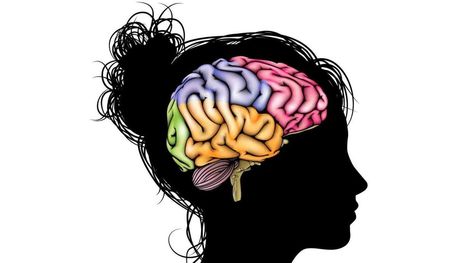


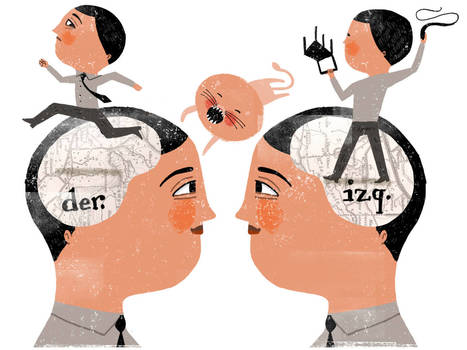

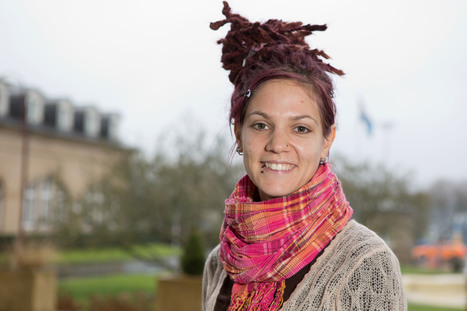







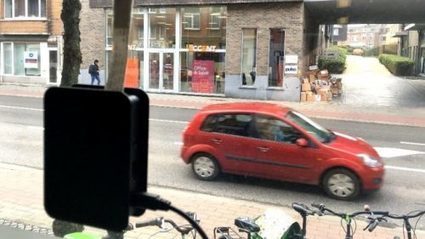
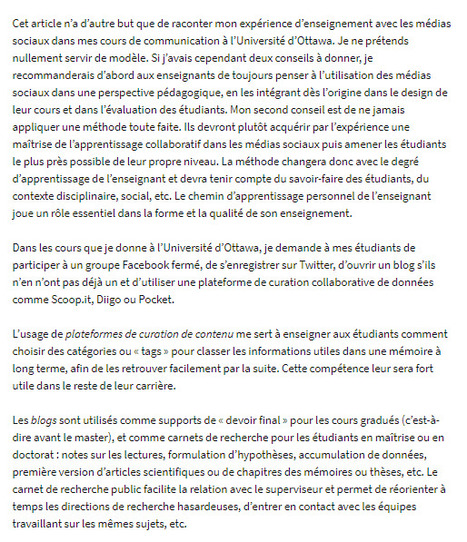

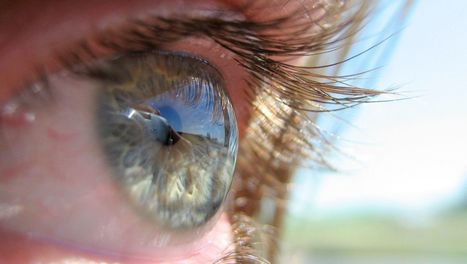
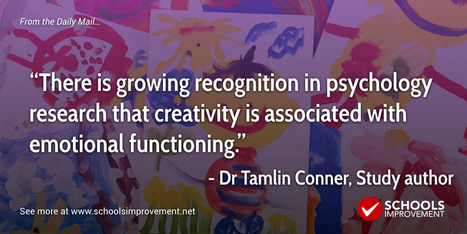




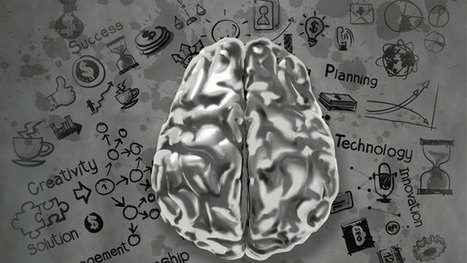
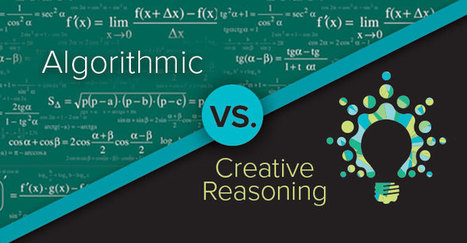

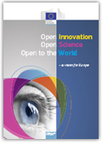
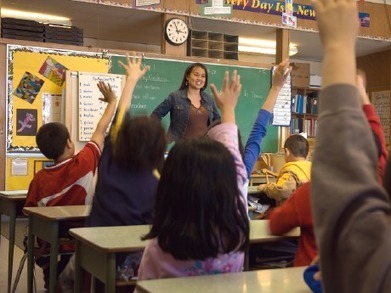








Forscher erschaffen menschliche Embryonenmodelle im Labor
Wissenschaftler haben zum ersten Mal menschliche Zellhaufen erzeugt, die frühen Embryonen ähneln. Die Entwicklung wirft grundlegende ethische Fragen auf – auch, ob die Forschung in Deutschland möglich wäre.
Learn more / En savoir plus / Mehr erfahren:
https://www.scoop.it/topic/21st-century-innovative-technologies-and-developments/?&tag=Research